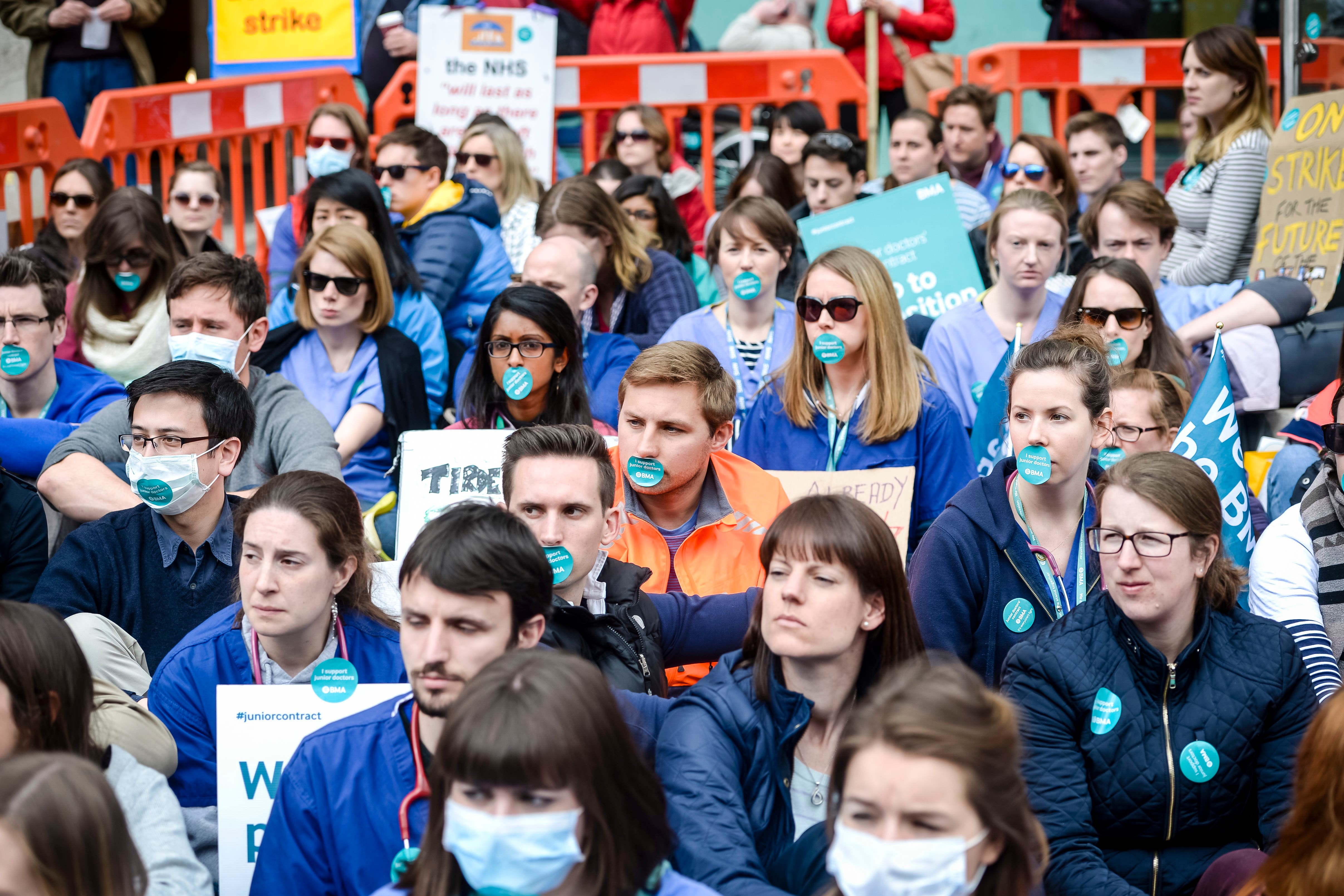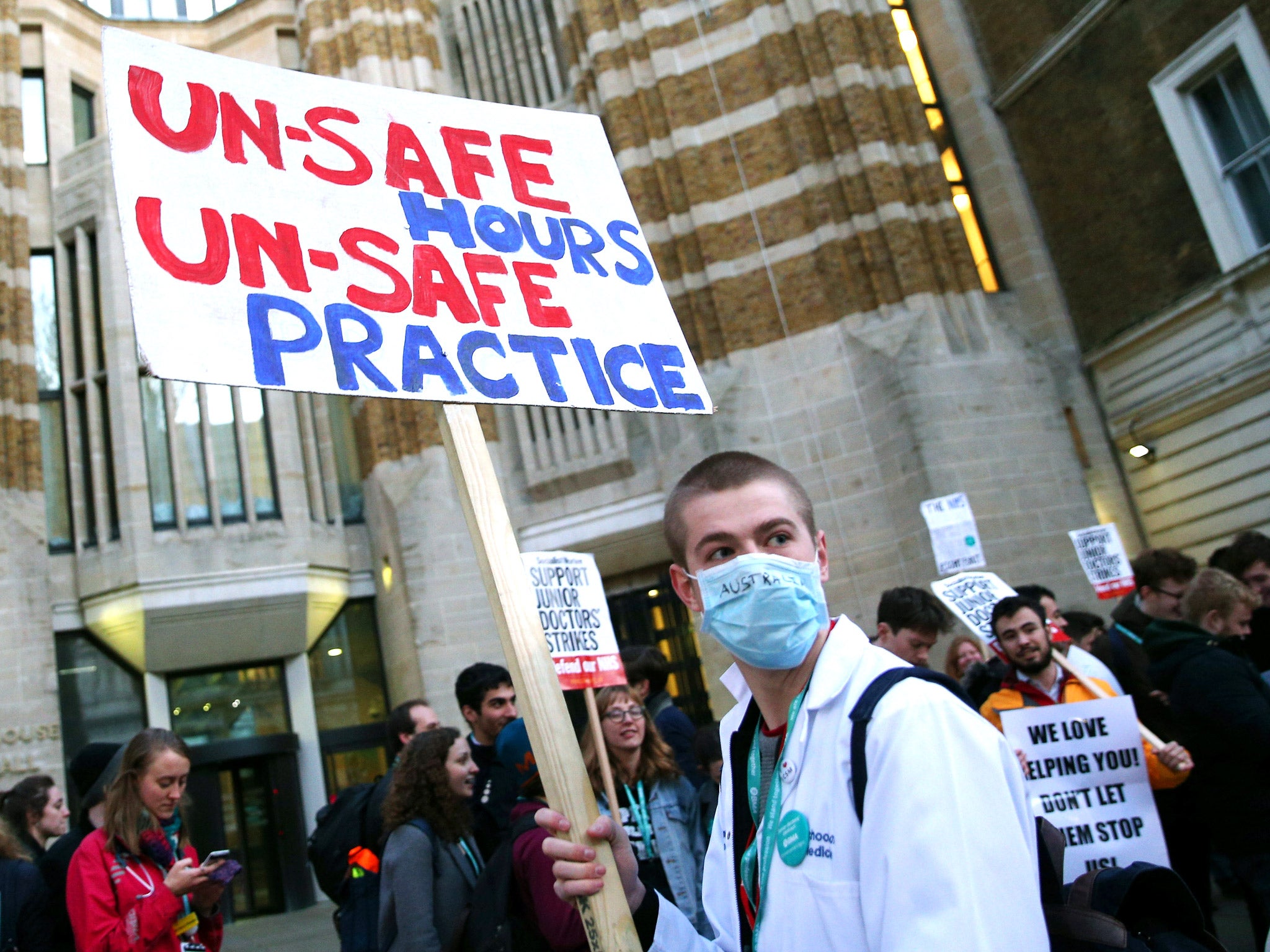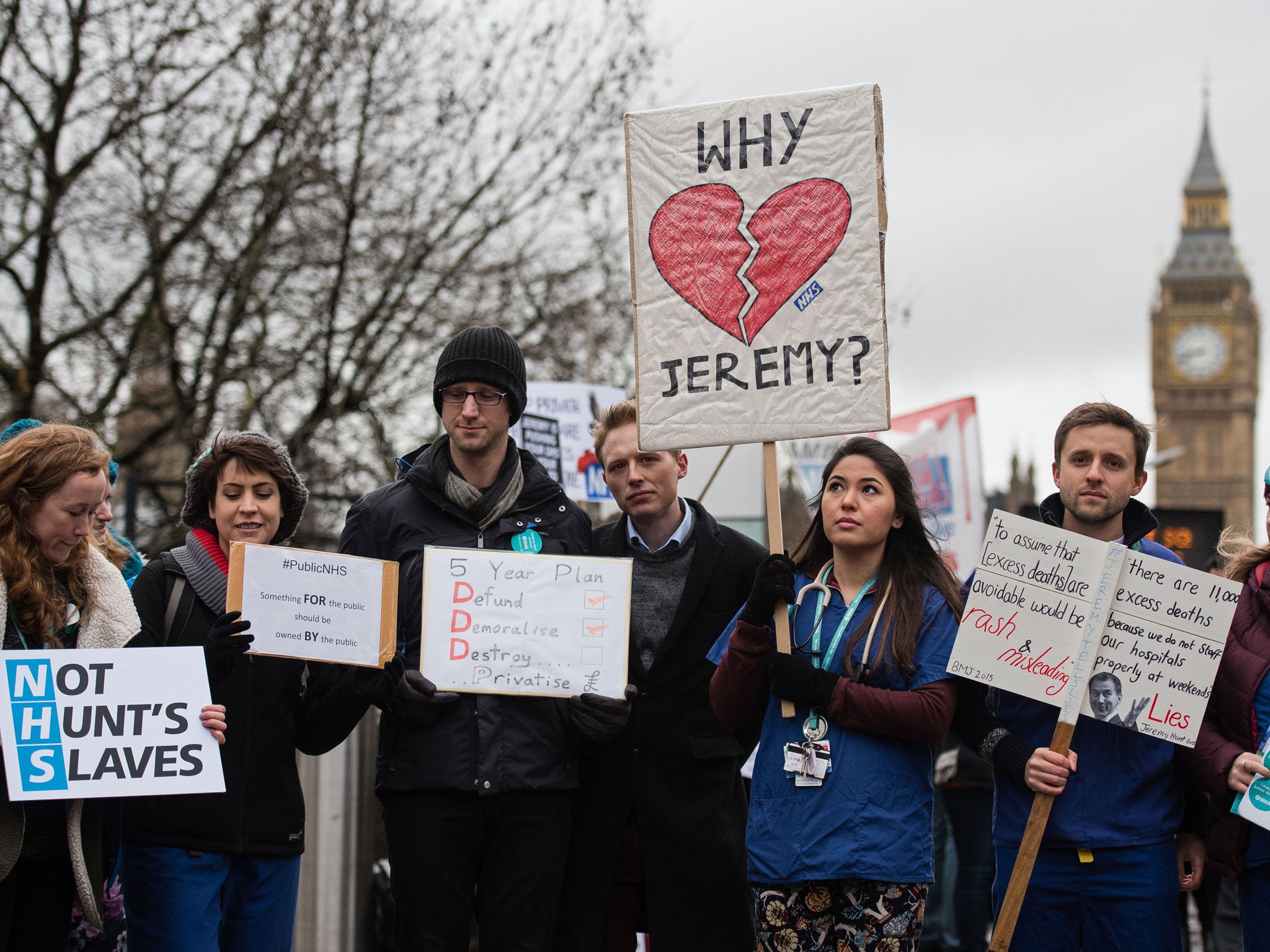NHS leaders warn life-saving surgeries and urgent cancer care will be hit during doctors’ strike
Exclusive: NHS trusts planning closures and downgrading of A&E departments during strikes, leaked reports reveal

Your support helps us to tell the story
From reproductive rights to climate change to Big Tech, The Independent is on the ground when the story is developing. Whether it's investigating the financials of Elon Musk's pro-Trump PAC or producing our latest documentary, 'The A Word', which shines a light on the American women fighting for reproductive rights, we know how important it is to parse out the facts from the messaging.
At such a critical moment in US history, we need reporters on the ground. Your donation allows us to keep sending journalists to speak to both sides of the story.
The Independent is trusted by Americans across the entire political spectrum. And unlike many other quality news outlets, we choose not to lock Americans out of our reporting and analysis with paywalls. We believe quality journalism should be available to everyone, paid for by those who can afford it.
Your support makes all the difference.Life-saving surgeries and urgent cancer care will be hit by “widespread” cancellations during the junior doctors’ strike, NHS leaders have warned.
Leaked NHS assessments of next week’s planned walkouts also suggest that some hospitals will be so short-staffed, they will be unable to run a full A&E service or provide critical care during the three-day action.
Tens of thousands of surgeries and outpatient appointments are expected to be rescheduled, including for patients needing the most urgent care, NHS sources say.
Concerns raised in the assessments by NHS trusts in England, seen by The Independent, include:
- Emergency surgeries that must be carried out within 24 hours will be delayed
- Urgent cancer surgeries and chemotherapy treatment will be rescheduled
- A&E departments could be downgraded to minor injury units
- Mental health trusts won’t be able to maintain critical services for patients experiencing a crisis
It is the first time the NHS has indicated that emergency services and urgent cancer operations will be hit, as 61,000 junior doctors are set to walk out from Monday to Wednesday next week after pay talks with the government failed.
NHS trust leaders have told The Independent that this round of strikes will be the hardest yet, and that patient safety will be put at risk.
The warning comes as the British Medical Association (BMA) said on Friday evening that it had turned down “11th hour” requests from civil servants to call off strike action, as it claimed the government’s proposals for negotiation “lacked credibility”.
Almost 140,000 appointments and operations have already been cancelled over the past few months as a result of multiple strikes by nurses and ambulance workers since December. However, further strikes by the Royal College of Nursing, Unison, Unite and GMB have been paused while further pay talks take place.
The impact of doctors’ strikes is expected to be even bigger, and NHS England asked all hospitals to carry out an assessment of how they would be affected.
One NHS trust warned it would be “unable to maintain wards, full service of ED [emergency department] ... critical care services”, while another said it would “not have complete rota cover for any speciality”, including urgent children’s services and emergency surgery.

One trust in the South West is planning to downgrade an emergency department to a minor injury unit, and the Christie NHS Foundation Trust, in Manchester, is expected to reschedule a “significant” number of cancer appointments. Trusts fear that the effects will also be felt in the days after the strikes, as they scramble to rearrange operations and appointments.
It is understood that NHS England will announce on Saturday that it is expecting “significant disruption” compared to previous strikes, but that trusts will prioritise emergency and critical care. It will recommend that patients needing emergency care still attend A&E and call 999, and that people use NHS 111 online for other ailments.
NHS Providers chief executive Sir Julian Hartley said: “The level of concern about safety for patients is elevated, given what’s about to happen. Most trusts will be doing everything to manage and mitigate the impacts on patient safety. Although, I think there is a level of uncertainty, in terms of not knowing exactly how many junior doctors are out, and the level of consultant cover that they’re going to have.
“So trust leaders are concerned about ensuring the safety of patients, which is why they’ve been doing a huge amount of work in the run-up to this.”
The BMA has called on the government to address a 26 per cent real-terms cut in doctors’ pay since 2009 – a result of below-inflation pay rises. To rectify this, the government would need to award doctors a 35 per cent increase for 2022-23, according to the BMA’s estimate.
Sir Julian urged the government to open up last-minute talks with the BMA to avert the strikes, adding: “The NHS is a priority for the government. Reducing care backlogs is one of the prime minister’s top five priorities, so we need to see the follow-up to supporting the NHS to deliver against that, and that means resolving this dispute as quickly as possible.”

One executive also said they were worried about safety, adding: “I think we have a plan to keep us safe, but, as an example, we’d normally have nine doctors working overnight covering medical patients, in ED and onwards. During this period we will have five, albeit much more senior.
“I’d expect that most [trusts] will be able to protect [priority one] operations. It is priority two that will be impacted ... [but] we are talking about hundreds of cancelled operations and thousands of cancelled outpatient appointments just in [this trust]. I’m not sure the government appreciates the sheer scale of impact this will have.”
The Department of Health and Social Care said it was “deeply disappointing” that some union members were striking, and that it had been working with NHS England on contingency plans to help protect patient safety during walkouts.
“The secretary of state has met with the BMA and other medical unions to discuss what is fair and affordable, as well as wider concerns around conditions and workload. He wants to continue meeting to discuss how we can make the NHS a better place to work,” they said.
NHS England has been approached for comment.




Join our commenting forum
Join thought-provoking conversations, follow other Independent readers and see their replies
Comments